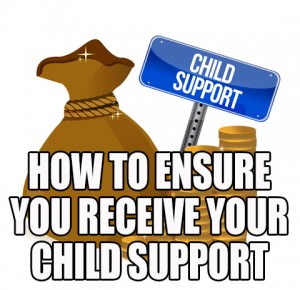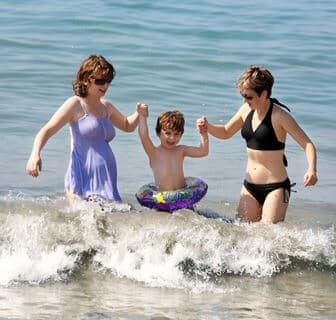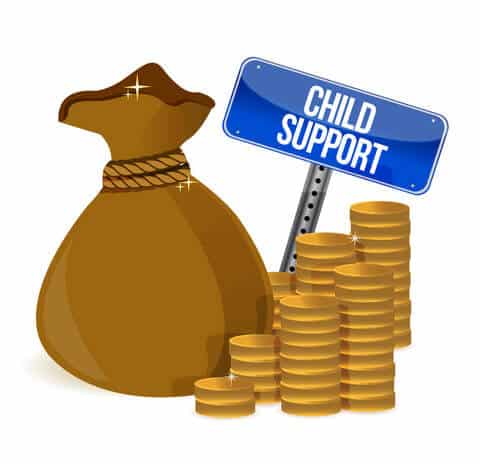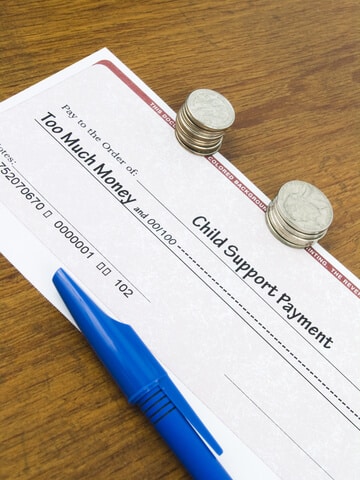What You Need to Know About Child Support on Long Island
HOME ABOUT US OUR FIRM FIRM YOUR LEGAL TEAM ATTORNEYS YOUR ATTORNEYS ROBERT E HORNBERGER CHRISTINE M VERBITSKY ANNEMARIE LANNI LAWRENCE M. MARINO BRENDA LYNCH (Of Counsel) PRACTICE AREAS AREAS OF EXPERTISE What’s Involved In Divorce DIVORCE DIVORCE COLLABORATIVE...I was referred to Mr. Hornberger from a friend who knew him. He spoke highly of Mr. Hornberger’s reputation as a very successful and professional divorce attorney. I was very hesitant to contact an attorney due to the sensitivity of my situation. From the moment I contacted Mr. Hornberger I knew I was in good hands. He was easy to speak with, paid close attention to all my MANY questions and reassured me that he could handle my divorce case. Since the 1st phone call, I was sure I wanted Mr. Hornberger to represent me in what I knew would be a very difficult divorce. He DID NOT disappoint! When I thought I would lose everything, with Mr. Hornberger fighting for me, I was able to have custody of my children, stay in the family home and receive child support. As far as divorce attorneys go….. Mr. Hornberger is the RIGHT choice!!!!
Ensure You Receive Child Support on Long Island
 Child Custody and Child Support will be matters resolved during your Long Island Divorce. With the assistance of your Long Island Divorce Lawyer, you and your spouse may decide to agree to joint custody. Because this generally allows your children to spend an equal amount of time with both parents, many incorrectly believe this also eliminates the requirement of one parent paying child support. However, just because you and your spouse have elected to follow a joint custody arrangement does not mean that you have essentially opted out of being awarded (or having to pay) child support. When parties elect to follow a joint custody child custody arrangement, the spouse who earns more, regardless of the amount of time the children spend with this parent, is deemed the “non-custodial” parent for child support purposes. Therefore, the “non-custodial” spouse (the spouse who earns more per year) will still be required to pay child support pursuant to the Child Support Standards Act.
Child Custody and Child Support will be matters resolved during your Long Island Divorce. With the assistance of your Long Island Divorce Lawyer, you and your spouse may decide to agree to joint custody. Because this generally allows your children to spend an equal amount of time with both parents, many incorrectly believe this also eliminates the requirement of one parent paying child support. However, just because you and your spouse have elected to follow a joint custody arrangement does not mean that you have essentially opted out of being awarded (or having to pay) child support. When parties elect to follow a joint custody child custody arrangement, the spouse who earns more, regardless of the amount of time the children spend with this parent, is deemed the “non-custodial” parent for child support purposes. Therefore, the “non-custodial” spouse (the spouse who earns more per year) will still be required to pay child support pursuant to the Child Support Standards Act.
What is the Child Support Standards Act?
The Child Support Standards Act sets forth guidelines which the courts on Long Island, NY must follow when determining child support. Therefore, while a court may have the authority to look to individual factors and circumstances to determine child custody, it does not have the authority to modify the amount of child support which must be paid. The amount of support the non-custodial parent is required to pay weekly or monthly depends upon the number of children for which it is meant to support; for example, if the child support is for one child, the non-custodial parent will have to pay 17% of his or her adjusted gross income, while he or she will have to pay 31% of his or her adjusted gross income for four children. The non-custodial parent will also be responsible for a percentage of the unemancipated children’s medical, dental, educational, and extracurricular expenses. These costs can be divided equally between both parents, with each paying 50% of the expenses, or calculated dependent upon what percentage of the parties’ total income each earns and then paying that respective amount.
How is Child Support Collected on Long Island?
When filing an order for child support, your Long Island Divorce Attorney should alert you to the line on the form which gives you the option to have support collected through the Support Collection Unit of the Child Support Enforcement Unit. Both Nassau County and Suffolk County as well as all boroughs of New York City have individual Support Collection Units to handle cases located within its respective geographical boundaries. If you elect to receive your child support payments through the Child Support Enforcement Unit, it will keep track of payments due to you, including amount and frequency. The Child Support Enforcement Unit has many avenues available to it which allow it to obtain child support payments before funds even reach the hands of the non-custodial parent.
What Methods of Collection are Available to the Child Support Enforcement Unit?
First, and likely the most common method employed by the Child Support Enforcement Unit is income execution. In these instances, the non-custodial parent’s employer will be ordered to withhold the appropriate amount of child support from the non-custodial parent’s paychecks. If the non-custodial parent is unemployed and receiving unemployment benefits, the Child Support Enforcement Unit has the power to levy and intercept these funds as well. Additionally, the Child Support Enforcement Unit can levy any amounts owed to the non-custodial parent such as income tax refunds or anything he or she may have won by playing the lottery.
However, not all methods involve levying funds before they reach the hands of the non-custodial parent. The Child Support Enforcement Unit also has the power to suspend the non-custodial parent’s driver’s license, deny them the ability to apply for a United States passport, or place a lien against any property they may own.
What Does This Mean for Me?
If you have concerns that your spouse will fail to timely and adequately pay court ordered child support, it would be wise to discuss the benefits of the Child Support Enforcement Unit with your Long Island Divorce Attorney. While a divorce by its nature a stressful experience, knowing you will not have to worry about actively enforcing child support payments down the road can relieve some of the stress and ensure your children receive the support they deserve.
Need Help with Child Support Payments on Long Island? We Can Help
The experienced and compassionate Long Island divorce lawyers at Robert E. Hornberger, Esq., PC can help ensure you and your children receive the Child Support they deserve. Contact us today at 631-923-1910 or fill out the short form on this page for a complimentary consultation.
Can I Modify My Child Support After My Long Island Divorce?
 It is a few years or even a few months after your Long Island divorce attorney finalized your divorce and you find yourself in a much different financial position than you were when your judgment of divorce was entered. You may now be living paycheck to paycheck; you may have lost your job, or fallen ill or experienced some other life-changing event which has modified your income. You now find yourself unable to keep up with the Child Support payments a Nassau County or Suffolk County court originally ordered. You want to support your children, but you have questions such as:
It is a few years or even a few months after your Long Island divorce attorney finalized your divorce and you find yourself in a much different financial position than you were when your judgment of divorce was entered. You may now be living paycheck to paycheck; you may have lost your job, or fallen ill or experienced some other life-changing event which has modified your income. You now find yourself unable to keep up with the Child Support payments a Nassau County or Suffolk County court originally ordered. You want to support your children, but you have questions such as:
- Do I have any recourse in the matter?
- Is there any way I can seek a downward modification of the order?
- Will my ex-spouse be able to bring a judgment against me when I am inevitably unable to pay?
On the other hand, as a custodial parent, you may feel that the amount agreed to by you and your ex-spouse is no longer adequately covering the needs of your children. They may be entering the age of sports and after school activities and they may need additional money to be able to participate. While your first avenue should be to speak to a Long Island divorce attorney, the following are some guidelines to educate you on what you may expect before that meeting.
Under What Situations Can Child Support be Modified?
- Substantial Change in Circumstances. This provision protects the non-custodial parent who may have fallen ill or is dealing with other unforeseen and unanticipated events that alters his or her ability to satisfy the child support obligation. It also protects the custodial parent who now cannot adequately provide for the children with the original support order due to his or her inability to work. In these instances, the party moving for the modification must show that his or her earning capability, and not in fact what he or she actually earns, makes it impossible to satisfy the order. Essentially this is a catch-all criterion for cases that do not meet either of the following two circumstances.
- Three Years Have Passed Since A Modification Was Requested. These grounds are pretty self-explanatory. If three years have passed since the child support order was entered, modified, or adjusted, you can file for a modification of that order. This allows for the opportunity for a modification solely on the passage of time and does not require a change in circumstances or income of either party.
- There Has Been a 15% Change in Your Income. If you are the non-custodial parent you may be reading this article and think to yourself that you can quit your job and work below your means in order to avoid any child support obligations. However, this is not a good idea. Naturally courts do not look favorably upon the active avoidance of responsibilities, and therefore, if you have voluntary quit or taken a lower paying job, it is unlikely your request for a downward modification will be granted. This provision is meant to protect the non-custodial parent who is fired from his or her job and can no longer make the payments through no fault or his or her own. The same theory is applicable to the custodial parent. Additionally, if the custodial parent is seeking an upward modification, he or she must show that the non-custodial parent’s income has increased by at least 15%.
What Can I Do to Strengthen My Case for Modification of Child Support?
While your Long Island divorce attorney will ultimately instruct you as to exactly what you need to prove your case for modification of child support, you may be able to make the process easier by keeping track of certain things beforehand. If you have lost your job and are unable to pay, keep copies of any correspondence with your former employer concerning the discharge, copies of all resumes and job applications you have sent out in an attempt to obtain new employment, and in the event you do obtain new employment you should save copies of your pay-stubs to prove what you are currently making.
If you are ill and unable to work, you should naturally save copies of any doctor’s letters that represent that fact and copies of prescriptions or anything else evidencing proof of your illness. Your case is always stronger when you can provide relevant documentation.
Need Help with Your Child Support Agreement?
The experienced and compassionate Long Island divorce attorneys at Robert E. Hornberger, Esq., PC firmly believe that parents need to take financial responsibility for their children. However, we also hate to see either party, custodial or non-custodial, taken advantage of by a child support agreement that is out of date with their financial situation today. We have helped many Long Islanders modify their Child Support agreements to ensure the children are taken care of without imposing an undue hardship on either parent. Contact us today at 631-923-1910 to learn how you can have your Child Support Agreement modified to protect your children, and yourself.
Check out our Divorce Guide for Dads for more information about divorce issues specifically related to fathers.
Do Long Island Parents in Same-Sex Marriages Have the Same Divorce and Child Support Rights as Opposite-Sex Parents?
 The legalization of Same-Sex Marriages in New York has far-reaching implications for Long Island couples who have children in these marriages, particularly with regards to death, divorce and child support. While both spouses cannot be biological parents of the child or children of the marriage, should the non-biological parent/s and children born during that marriage be afforded the same legal protections opposite-sex spouses have enjoyed?
The legalization of Same-Sex Marriages in New York has far-reaching implications for Long Island couples who have children in these marriages, particularly with regards to death, divorce and child support. While both spouses cannot be biological parents of the child or children of the marriage, should the non-biological parent/s and children born during that marriage be afforded the same legal protections opposite-sex spouses have enjoyed?
Children Born of Marriage Deemed ‘Legitimate’ on Long Island, NY
The law in New York provides presents a strong presumption of legitimacy to children born of a marriage. This presumption arises not only from case law rulings, but also from its codification in Section 24 of New York’s Domestic Relations Law. Both provide that any child born to married parents is presumed to be “the legitimate child of both parents.” Non-marital children, therefore, are not afforded this presumption, and are seen as the legitimate child of only the mother.
Benefits of Legitimacy
In order to be the legitimate child of the father, there must be facts and circumstances to prove such. While you may be wondering why this matters, one important benefit of being afforded said presumption is what happens upon the death of a parent to whom the child is not deemed to be a legally legitimate child.
When an illegitimate child’s father dies without a will, the child must prove paternity, either through a court order or other evidence, such as the father having held the child out as his own during his lifetime, in order to inherit through the father’s intestate distribution scheme.
A second issue arises upon the divorce or separation of a couple. A parent is entitled to visitation and/or child support for a child born of a marriage; however, a parent of an illegitimate child may be legally excluded from seeing that child upon divorce or separation. Accordingly, the presumption affords marital children a large benefit over non-marital children. However, with the recent passing of New York’s Marriage Equality Act, which recognizes same-sex marriages, the issue of whether this presumption applies to same-sex marriages as well has reached the courts.
Wendy G-M. v. Erin G-M.
This case, which was heard in New York’s Supreme Court in Monroe County, centered on a child born to a same-sex couple via artificial insemination. The couple, which was legally married, consented to the procedure and executed a document providing that any child born of the procedure would be “accepted as the legal issue of [the] marriage.” The non-birthing spouse was involved in the process and pre-birth rituals, such as birthing classes and name choosing, to the same extent as the birth-spouse was, and the child’s birth certificate has both women listed as her parents. Not long after the birth of the child, the couple separated, the birth-spouse filed for divorce and subsequently prohibiting her partner to visit with the child. If the non-birth parent was considered to be the child’s legitimate parent, she would have a right to visitation and the birth mother could not legally prohibit that right without a court order.
Does the Same Presumption Apply to Same-Sex Marriages?
Because the New York Courts had previously held that the term “parent” does not contain gender-specific boundaries, the court in Wendy G-M. v. Erin G-M. held that the presumption of legitimacy applies to children born of same-sex marriages as well.
Furthermore, courts have stated that any changes in the definition of the term “parent” cannot come from case law, but rather should come from changes in legislation that represent the growing views of the community. More specifically on the topic of artificial insemination, the Domestic Relations Law provides that a child born of artificial insemination is not the legitimate child of the anonymous donor, but of the husband and wife to which the child is born. Therefore in such instances, when all statutory requirements are met, there is a rebuttable presumption that a child born of artificial insemination is the child of the marriage.
So long as both parents consent to and are involved in the procedure, and there is intent that both parties be considered to be the legitimate parents of the child, there is no legal difference between opposite or same sex marriages. As with most, this presumption is rebuttable and can be negated by either spouse; “the birth-mother could produce evidence that she never intended her spouse to be the parent … [and] the unknowing, non-biological spouse, would be required to overcome the presumption of consent, and prove lack of consent.”
What Does this Mean for Me on Long Island?
If you are in a same-sex relationship in New York, any child born of your marriage through artificial insemination, so long as there is consent on behalf of both of you and your partner, will be presumed to be the legitimate child of the marriage. Therefore, if you are seeking a divorce, the birth-spouse cannot prohibit the non-birth parent from visitation rights with the child, nor can be excused from child support payments.
Have Questions About Your Parental Rights and Responsibilities? Speak to an Experienced and Compassionate Long Island Divorce Attorney
The Long Island divorce attorneys and divorce mediators at the law firm of Hornberger Verbitsky, P.C. are experienced in all aspects of divorce law on Long Island, including those impacted by the recent Marriage Equality Act. To schedule an appointment for a complimentary consultation to discuss your case, contact our offices at 631-923-1910.
Worried About Child Support on Long Island, NY: How Much You’ll Receive … or Have to Pay?
Answers To Your Long Island Child Support Payment Questions
 One of the biggest concerns of divorcing couples on Long Island is the support of their children. It will come as no surprise to anyone living in Nassau County or Suffolk County, that our costs for child-rearing are among the highest in the country. So, if your children are going to be living with you (the Custodial Parent), you’re naturally concerned about how much you can expect to receive from your ex-spouse to help mitigate these expenses. And, if your children are not going to be living with you (the Non-Custodial Parent), you want to know how much of your hard-earned money are you going to have to pay to your ex-spouse for the care of your children.
One of the biggest concerns of divorcing couples on Long Island is the support of their children. It will come as no surprise to anyone living in Nassau County or Suffolk County, that our costs for child-rearing are among the highest in the country. So, if your children are going to be living with you (the Custodial Parent), you’re naturally concerned about how much you can expect to receive from your ex-spouse to help mitigate these expenses. And, if your children are not going to be living with you (the Non-Custodial Parent), you want to know how much of your hard-earned money are you going to have to pay to your ex-spouse for the care of your children.
Under New York law, parents are required to provide care for their minor children until the age of 21. As you are going through your divorce, you may be wondering how such child support is calculated and what it means to you and your soon to be ex-spouse. While the courts have discretion in some areas of determining child support, in order to keep decisions uniform, child support calculations are mainly based upon a statutory formula. The courts use what has become known as the Child Support Standards Act to guide determinations in what is a fair and reasonable amount of child support.
How Much Will I Have to Pay in Child Support Payments?
Your most pressing concern regarding child support will likely be how much you will be paying, or receiving if you are the custodial parent, per month in support. According to the Child Support Standards Act, the non-custodial parent will pay a percentage of the combined parental income, which is the combined income of both you and your soon to be ex-spouse, dependent upon how many children you or your partner have physical custody of.
If you have custody of:
- One child: 17% of the combined parental income;
- Two children: 25% of the combined parental income;
- Three children: 29% of the combined parental income;
- Four children: 31% of the combined parental income; and
- Five or more children: no less than 35% of the combined parental income.
What Sources of Income are Included in Calculating the Combined Parental Income?
Aside from the salaries you and your partner receive from your respective jobs, there are outside sources of income that are taken into consideration when calculating the combined parental income for child support payments.
Other Source of Income Include (but are not limited to):
- Worker’s Compensation Benefits
- Disability Benefits
- Pension Benefits
- Retirement Benefits
- Annuity Payments
- Social Security Benefits
Income from these sources will be included in the calculation even if you chose to defer payment. Additionally, the court has discretion to include income from money or services provided by family or friends or any benefits, including meals and automobiles, which are provided by your employer for your personal use. Furthermore, if you are entitled to payments due to extraordinary circumstances, such as a payout from a Life Insurance policy, Inheritance under a will, or Lottery Winnings, such payments will also be included in the computing of combined parental income. Therefore, it is important that you are completely candid with your divorce attorney about any possible source of income, as it is possible that income you do not expect to be included in the calculations will be.
What if I am the Custodial Parent But am Also Currently Enrolled in School?
If you have physical custody of your children, but are in the process of obtaining a diploma or degree, you may be worried about how you can afford the cost of childcare for your children. The Child Support Standards Act seeks to remediate such concerns. Therefore, if you are enrolled in school, whether it is high school, college, or vocational school, you and your soon to be ex-spouse will split the cost of child care pro-rata. Your divorce attorney will be able to provide you more guidance as to the definition of “pro-rata”.
What if the Child Support Formula Provides an Inadequate Amount of Contributions?
In certain instances, the black and white formula provided by the Child Support Standards Act will prove to be insufficient to assist the custodial parent in caring for the children. In such instances, the court has the power to order the non-custodial parent to pay any greater amount that it finds just and appropriate. In order to determine this amount, the court will take into consideration the financial resources of both the custodial and non-custodial parent, including whether the gross income of one parent is substantially less than that of the other; the child’s health, including any special needs; and whether the non-custodial parent must incur extraordinary costs for child visitation (transportation, lodging, tolls, etc.). Keep in mind however, that this is not an exclusive list, and the court may consider any outside circumstances it deems relevant.
Need More Information About Long Island Child Support?
If you have additional questions about your rights and responsibilities regarding Child Support on Long Island, please give us a call at 631-923-1910. We’ll be happy to schedule a complimentary consultation where we can sit down and discuss your questions and concerns.
Shared Custody Does Not Mean You Do Not Have to Pay Child Support on Long Island, NY
 As a Long Island Divorce Attorney and Child Support Attorney, I am often asked the question, “If I share custody of the children, do I have to pay child support?” or “Will I receive child support in a shared custody situation?” There is a common misconception in Nassau County and Suffolk County child support cases that there is no obligation to pay child support where two parties “share” custody or “share” equally in parenting time. Because the Child Support Standards Act is silent on the matter of shared custody, it is not surprising that this question has been litigated several times in the State of New York.
As a Long Island Divorce Attorney and Child Support Attorney, I am often asked the question, “If I share custody of the children, do I have to pay child support?” or “Will I receive child support in a shared custody situation?” There is a common misconception in Nassau County and Suffolk County child support cases that there is no obligation to pay child support where two parties “share” custody or “share” equally in parenting time. Because the Child Support Standards Act is silent on the matter of shared custody, it is not surprising that this question has been litigated several times in the State of New York.
In 1998, the New York Court of Appeals formally recognized that the Child Support Standards Act does in fact apply to cases of shared custody. In the case of Bast v. Rostoff, the Court of Appeals attempted to reconcile a shared custody agreement with the Child Support Standards Act, as the lower court acknowledged, “[t]he concept of shared parenting time does not appear anywhere in the statute.” 91 N.Y.2d 723, 725 (1998). (more…)

Court’s Unusual Child Support Award has Implications in Nassau & Suffolk, Long Island, NY
 On June 28, 2013, the Supreme Court, Appellate Division, Fourth Department made an interesting decision in regard to child support and the noncustodial parent that has implications for Divorce cases in Nassau County and Suffolk County Courts on Long Island, NY. In Leonard v. Leonard, the trial court granted the parents shared physical custody and the father sole legal custody. Also, under the trial court decision, the mother was responsible for paying child support to the husband, although he actually had a far more significant income than the mother. The mother appealed the entire decision, but the Appellate Division only ruled on the issue of child support.
On June 28, 2013, the Supreme Court, Appellate Division, Fourth Department made an interesting decision in regard to child support and the noncustodial parent that has implications for Divorce cases in Nassau County and Suffolk County Courts on Long Island, NY. In Leonard v. Leonard, the trial court granted the parents shared physical custody and the father sole legal custody. Also, under the trial court decision, the mother was responsible for paying child support to the husband, although he actually had a far more significant income than the mother. The mother appealed the entire decision, but the Appellate Division only ruled on the issue of child support.
It is typical for the noncustodial parent to pay child support to the custodial parent, where the custodial parent is usually the parent with whom the child spends most of his or her time. However, in Leonard, the father had sole legal custody, not sole physical custody and each parent spent an equal amount of time with the children. In the appeal, the court found that because both parents shared equal time with the children that the father should be viewed as the noncustodial parent, but only as it related to child support, stating: “It is well settled that in shared residency arrangements, where neither parent has the children for a majority of the time, the party with the higher income is deemed to be the noncustodial parent for purposes of child support.” Leonard v. Leonard, 2013 WL 3242643 at *1.
The father tried to argue that the above reasoning was based on cases where parents held joint legal custody, and that they did not apply because he had sole legal custody of the children. The court found that having sole legal custody does not increase the financial burden placed on the custodial parent when both parents share physical custody equally. Moreover, the court found that because there was already a significant gap between the incomes earned by both parents, that ordering the mother to pay child support would only increase this disparity. Based on the income of each parent, the equal amount of time the parents spent with the children, and in an effort to maintain a more equal standard of living for the children, the court held that for the purpose of child support the father was the noncustodial parent and is responsible for paying child support.
We’re Here to Help Your Long Island, NY Child Support Issues with a Free Consultation
The Long Island Divorce Attorneys at Robert E. Hornberger, P.C. are dedicated to keeping current on the latest rulings with respect to divorce and Child Support in Nassau County and Suffolk County courts and how those rulings can affect their clients. Call us at 631-923-1910 or fill out the short form on this page and we will be happy to demonstrate how we can help you during a free consultation.
Child Support in Nassau, Suffolk, Long Island, New York
Your Child Support on Long Island Questions Answered
 As a Divorce Attorney on Long Island, I regularly counsel clients on issues of Child Support and Child Custody in both Nassau and Suffolk Counties.
As a Divorce Attorney on Long Island, I regularly counsel clients on issues of Child Support and Child Custody in both Nassau and Suffolk Counties.
Long Island Family Courts, under the jurisdiction of New York State law, have ruled that children are entitled to proper child support from their parents, even if the parents aren’t living together. In New York State, the standard passed by law requires a minimum amount of money paid to the custodial parent based on the gross annual income of both parties. The breakdown is then multiplied by the following percentages:
- 17% for one child
- 25% for two children
- 29% for three children
- 31% for four children
- No less than 35% for five or more children
The basic child support obligation is then divided proportionately between the parents, based on their respective incomes. In order to make sure the custodial parent gets paid promptly, child support orders that payments be immediately withheld from the wages or other income of the obligated parent, unless there is some other type of agreement between the parties.
If a parent doesn’t pay, there are different punishments that can be implemented, including suspension of the parent’s driver’s license, an intercept of a tax return or lottery winning of $600 or more, and of course, obtaining a money judgment in court. In other circumstances, the state can freeze the obligated parent’s bank account, IRA, or other financial assets to seize the amount owed. As a final resort, they can also send the parent to jail if they believe no other type of enforcement would be effective.
Contact Us for More Information
If you have any questions regarding Child Support or Child Custody on Long Island, give us a call at 631-923-1910. The divorce law office of Robert E. Hornberger, P.C. will be pleased to offer you a free complimentary consultation to discuss your Child Support or any other divorce or family law issues.












